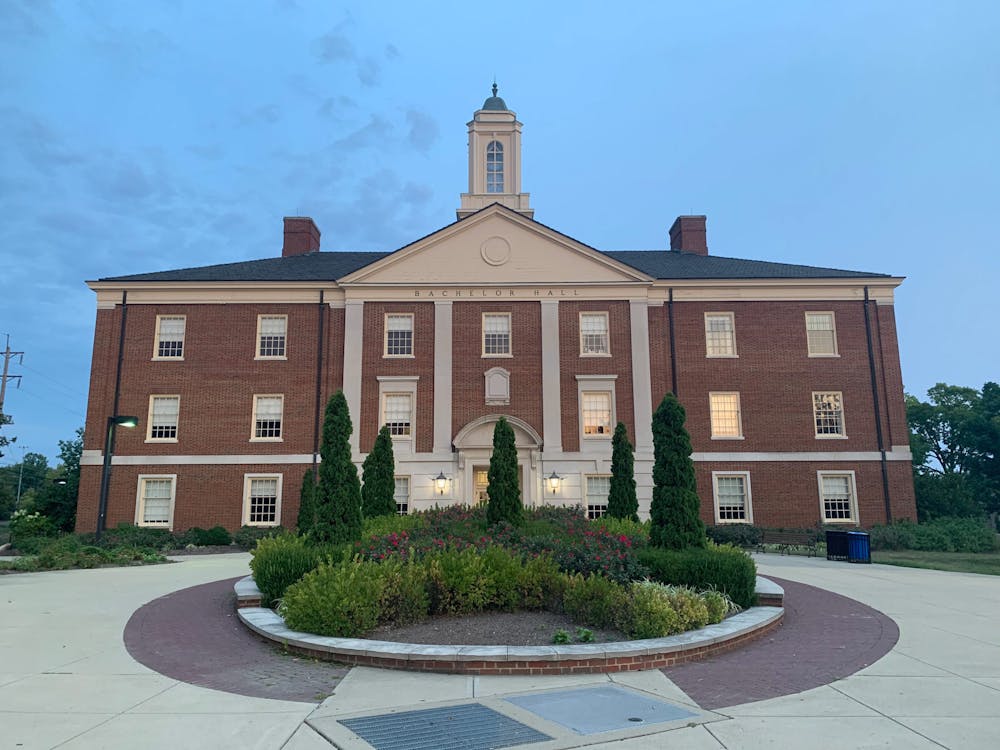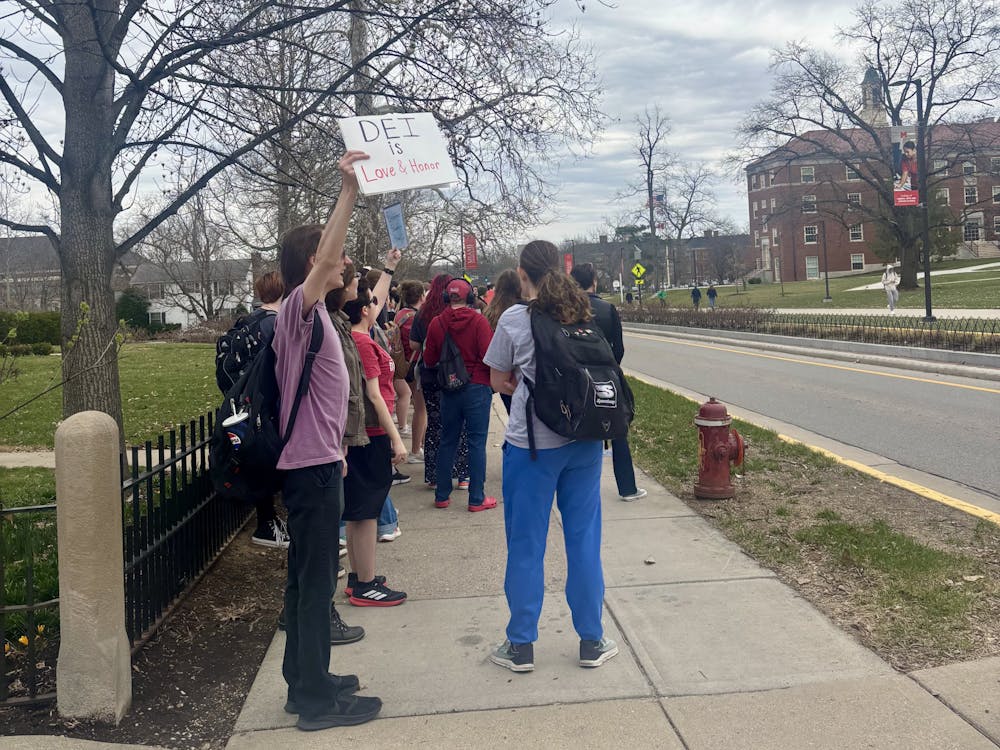Miami University’s research grant application process can be incredibly competitive and thought-intensive, and small errors can mean a difference of thousands of dollars.
So when Riley Acton, an assistant professor of economics, won $79,000 from the Bill and Melinda Gates Foundation, to say she was pleased in an understatement.
Acton is grateful for how helpful other faculty and staff at Miami were in helping her apply for the grant, especially since it’s only her second year at the university.
“I would just like to thank the various folks of Miami who helped make this happen and who continue to answer my emails when I don't know how to do things,” Acton said. “I'm lucky that we have a strong support for seeking external funding here, and I think that's something that universities should try to ramp up and do more of.”
Acton said she will use the grant to help assist her research on rural school funding programs. Her research involves looking at how the sparsity aid program in Wisconsin affects the education and outcomes of students in rural school districts.
“Ultimately we want to be able to make that link between exposure to increase funding while you're in school, and whether or not that is able to foster educational attainment down the road,” Acton said.
Acton first learned about the grant through Twitter.
“Lots of professors and lots of academics within my field are on Twitter, and so I saw that somebody shared, ‘Hey, the Gates Foundation is trying to invest more in research about school funding,’” Acton said. “I sent it to my co-authors and said, ‘Hey, this looks like it would be a good fit for our work. They're only requesting a couple page application, and a basic budget outline — let's get something together and see what happens.’”
Cody Orr and Salem Rogers are the co-authors of Acton’s research paper, “Returns to School Spending in Rural America: Evidence from Wisconsin's Sparsity Aid Program,” according to Acton’s website.
Acton is now able to use the money from the Gates foundation to fund the project and processes related to it.
“There’s money in the grant for hopeful travel to conferences to present some of this work,” Acton said. “We’re also using some money for software and materials as needed. The other big expense [in the grant] is a reduction in my teaching load for the spring — rather than teaching two classes in the spring, I will teach just one class … there is also a summer salary for me next year.”
The biggest part of the grant, however, isn’t going directly to Acton.
Enjoy what you're reading?
Signup for our newsletter
Erica Edwards is a first-year graduate student studying economics. Much of the grant money will go toward funding her research with Acton, as she is one of the primary research assistants for the project.
Edwards got the funding in a similar way that Acton got the grant.
“The economics department reached out to me and was like, ‘Here’s this opportunity, this professor is looking for a research position and has a grant,’” Edwards said. “It helps me a lot to defray the cost of [my degree] and gives me the opportunity to do research that I wouldn’t have had at all.”
Edwards spends a lot of time looking in libraries and newspapers to create a historical background for the research being done. She said she was grateful for the opportunity.
“It’s absolutely fantastic,'' Edwards said. “I really enjoy working with Dr. Acton and her co-authors, and it’s a great opportunity for me to meet other people doing research in the field,” “I really enjoy the project. Outside of being a grant recipient, it’s the kind of thing I would be interested in reading.”
The grant is meant to fund the project for a year, but Acton estimates it will last for longer than that.
“The funding of the grant is for 12 months, but publishing in economics takes a long time,” Acton said. “I'm sure we'll probably be continuing to work on it in some fashion, even after the next 12 months are up.”
Jenny Darroch, dean of the Farmer School of Business, wrote in an email to The Student that she had nothing but praise for Acton and the research.
"I am pleased that the value of Dr. Acton's important and timely research has been recognized by the Bill and Melinda Gates Foundation,” Darroch wrote. “Not just because of the critical nature of the topic, and the positive impact it can have on the educational experience for future generations of children, but because the grant will make it possible for [Edwards] to gain invaluable research experience and also strengthens our ties to researchers outside our own university."




